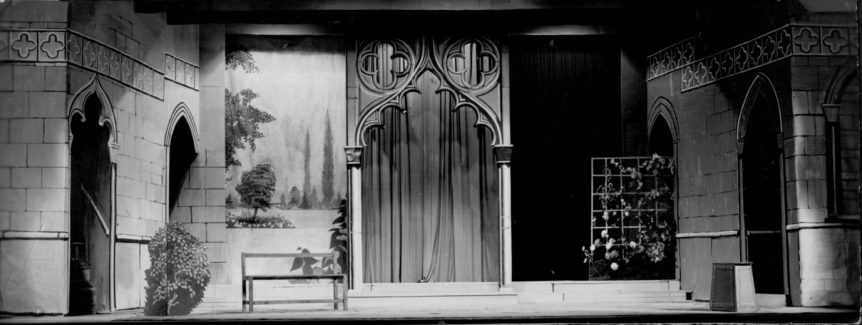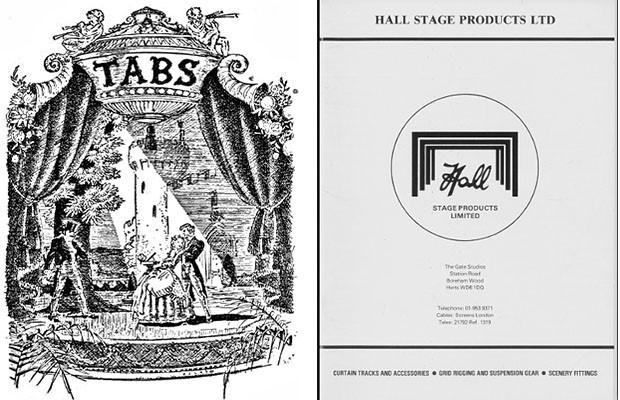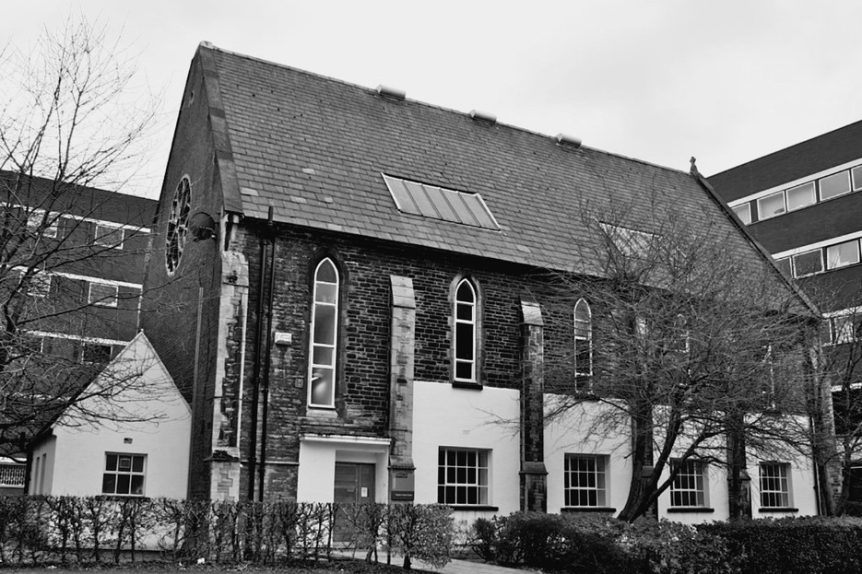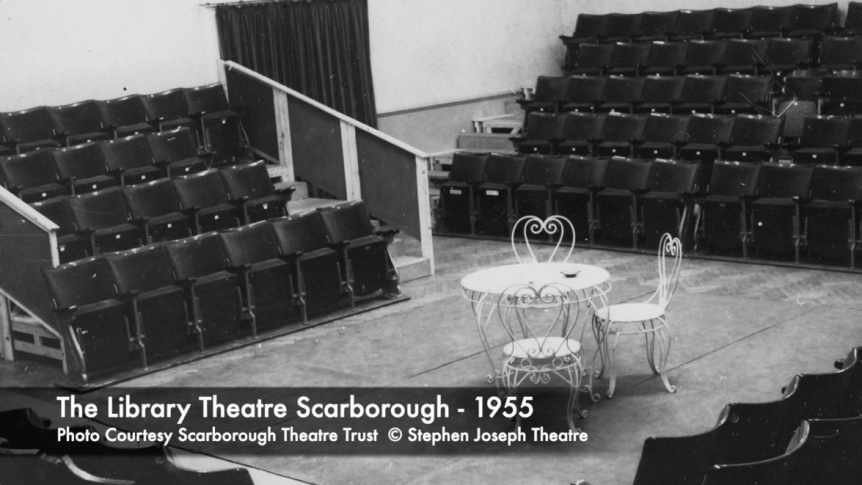You had support at home but what happens at school?
Well, when we moved, I went to a Church of England Primary School. I was 7 or 8 and I couldn’t read or write yet. I was devastated when I had to read in front of the class and I couldn’t do it. From that point on, I just hated school, I developed a stammer, became quite asthmatic, and was frequently away.
How did you deal with that situation?
I did the 11 plus and somehow I passed and I got a place at Longton High School. There was an English Master – Ken Lowe – who was part of a local amateur dramatic society and every year he would organise a production for the school. I helped paint the scenery for shows like ‘The Pirates of Penzance’ and and Bernard Shaw’s ‘Arms and Man’. The sports master hired the lighting from Strand Electric, with miles of cable and big banks of dimmers. I helped with this too.

My friend Roger, and I, avoided being part of the Cadet Force by opting to go to the art department on Friday afternoons. It was regarded as a kind of punishment, but for Roger and me it was a welcome escape and we experimented – Jackson Pollack here we come!
Roger became a quite well known painter and I moved more towards the theatre. I was much more interested in the theatre and staging than the academic side of school.
You continued to be interested in theatre?
As I said earlier, although not really formed in any practical way, I always somehow knew ………?
My sister and I went to a Methodist Church Sunday School and there was a big hall there, with a proscenium stage where they had concerts. I did a magic act there as ‘The Great Livo’, and started to work with an electrician who was improving the stage electrics. I learned a lot from him about working safely. He showed me how to wire things properly, so I got involved in doing the lighting for the amateur drama productions. I became increasingly interested in lighting and I started getting Tabs magazine, which was a lighting magazine produced by Strand Electric.
I also bought equipment from a hardware supplier, Hall Stage Products. I bought proper rails for the theatre to make sure the curtains ran smoothly and installed a pulley system to help with the staging. My knowledge of the technological side of things was constantly improving and I was coming across people who encouraged me and taught me how to do things properly.

While you are doing the theatre activities, what happens at school?
I was never very good academically but the Vice-Principal, a man called Tom Meredith, who taught English Literature in the upper school, supported me and introduced me to the Romantic poets and writers which I studied for ‘A’ Level. ‘Tut’ Meredith had a stammer and he always asked us to back up our arguments –“Liv…in….g….stone, where’s ….your …evi..dence?” That was a really valuable lesson.
When I did the exams, I did surprisingly well, I got 8 ‘O’ Levels and 3 ‘A‘ levels. My father had encouraged me to apply to Bristol University which at the time was the only place in the UK which had a drama degree. I needed ‘O’ level Latin to get into Bristol. After my third attempt I scraped through, but Nigel Coulter, my Latin teacher, a Yorkshireman, told me that they must have marked “wrong bloody paper!”.
I applied but I didn’t get in. But then I discovered there was a course in Drama at Manchester University. It was just starting and I had to ‘audition’ for Prof. Hugh Hunt and some of the lecturers to get in. I’m not an actor but I ‘performed’, “Well, Brutus, thou art noble, yet I see · Thy honourable metal may be wrought · From that it is disposed. Therefore it is meet · That noble minds keep ever with their likes”…..from Shakespeare’s ‘Julius Caeser’.
What happens then?
Much to my surprise I got a place.
It is at this point that Stephen Joseph became really important in my life.
You remember that I told you about going to Scarborough for a Summer Holiday? It was very rainy that year and my father took us to see a performance at the Studio Theatre, ‘Theatre in the Round’, which was in the local library. It was at this performance that I first encountered Stephen Joseph.
I had seen a tall man who appeared to be a theatrical jack of all trades: selling tickets, working the lights, moving props on the open space that served for a stage and at the end of the performance, dressed in immaculate white shirt and dinner jacket, wishing the audience good night saying, “I do so hope you enjoyed the play”.
After the summer season in Scarborough, Studio Theatre toured northern towns. Stephen brought his touring ‘fit up’ to the Municipal Hall in Newcastle. After performances, Mrs Pemberton Billing, Stephen’s Housekeeper and real ‘yiddisha momma’ to the company, served tea, coffee and wonderful home-made cake in an adjacent room. The actors, including Alan Ayckbourn, joined and chatted with the audience members.
It was after one of the performances in Newcastle, that Stephen advised me to apply to Manchester. The following year, I was sitting with him and telling him that I had been offered a place in the Drama Department at Manchester University. He said that he was going there as well. He had been appointed as Fellow in Drama.

Stephen died at a very early age, and unfortunately this ‘maverick’ genius of the British Theatre would remain largely unrecognised until fairly recently. I, and a group of alumni from the early years of the Manchester Drama Department and other Theatre Practitioners gathered at the Stephen Josephs Theatre in Scarborough to commemorate Stephen, fifty years after his death. We also arranged a Symposium at Manchester University the same year.
From this gathering, we developed the Stephen Joseph Association (SJA). This was later incorporated as the Stephen Joseph Committee (SJC) within the Association of British Theatre Technicians (ABTT), which Stephen had helped to found in 1961.

To see more of Alistair Livingstone’s work see the following links:

